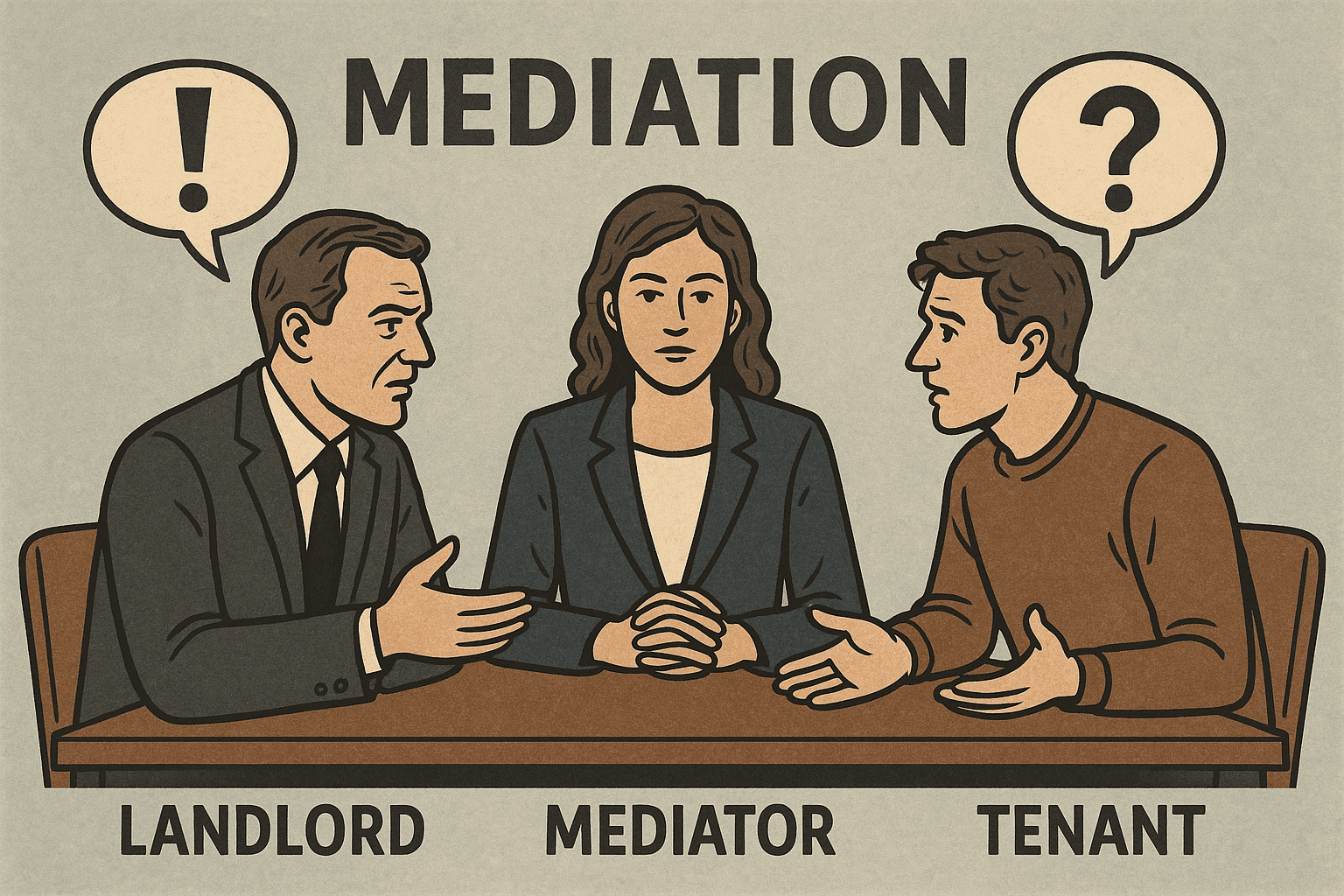
The UK’s Renters’ Rights Bill, expected to become law in summer 2025, promises sweeping reforms to the private rental sector. While the legislation aims to enhance tenant protections and improve housing standards, it is also likely to intensify disputes between landlords and tenants. Mediation, facilitated by a newly established ombudsman, could play a pivotal role in resolving these conflicts efficiently and fairly.
Key Reforms Likely to Spark Disputes
The Bill introduces several significant changes that may lead to increased friction between landlords and tenants:
- Abolition of Section 21 “No-Fault” Evictions: Landlords will no longer be able to evict tenants without providing a valid reason, potentially leading to more contested evictions under Section 8 grounds.
- Mandatory Periodic Tenancies: Fixed-term leases will be replaced with periodic tenancies, offering tenants indefinite occupancy. Landlords may find it more challenging to regain possession of their properties.
- Enhanced Tenant Rights: Tenants will have the right to request pets, and landlords must consider these requests reasonably. Additionally, discrimination against tenants with children or those receiving benefits will be prohibited.
- Rent Increase Regulations: Rent increases will be limited to once per year and must reflect market rates, with tenants empowered to challenge unreasonable hikes.
These reforms, while aimed at creating a fairer rental market, may lead to disagreements over tenancy terms, property conditions, and rent adjustments.
The Role of Mediation in Resolving Disputes
To address the anticipated rise in landlord-tenant conflicts, the Bill establishes a new Private Rented Sector Ombudsman. This independent body will offer mediation services to facilitate early dispute resolution, aiming to prevent issues from escalating to costly court proceedings.
Key features of the mediation process include:
- Landlord-Initiated Mediation: Landlords can initiate mediation to resolve disputes amicably.
- Online Mediation Platform: A national digital platform will facilitate online mediation sessions, making the process more accessible and efficient.
- Enforceable Outcomes: The Ombudsman will have the authority to enforce decisions, ensuring compliance from both parties.
By promoting mediation, the Bill seeks to reduce the burden on the judicial system and provide a more streamlined approach to conflict resolution in the rental sector.
Conclusion
The Renters’ Rights Bill marks a significant shift in the UK’s rental landscape, aiming to balance the rights of tenants and landlords. While the reforms are designed to protect tenants and improve housing standards, they may also lead to an uptick in disputes. The introduction of a dedicated ombudsman and mediation services offers a proactive solution to manage these conflicts, fostering a more harmonious rental market.
